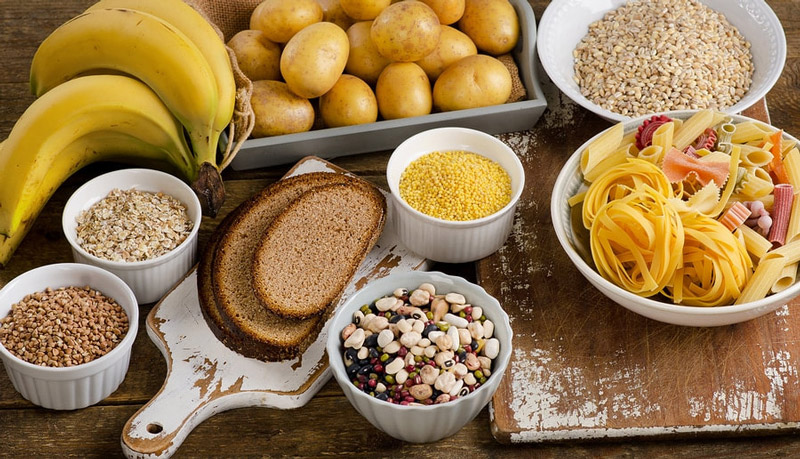Over the years our team has sat at the start line of many a 2km race, plenty of 5kms and even the odd 20km one! Some are one day regattas while some are held over a whole week, so along the way we’ve found out just how important diet can be to the final results. Just like a car, if we get our fuelling wrong, we can run out of gas at the most crucial times – so it’s important to at least have a basic understanding of how the food you eat affects your energy systems. Below are some of the little snippets of advice that we have picked up along the way – we certainly aren’t dietitians or nutritionists though, so if you are serious about knowing how YOUR body can perform better with nutrition, it would definitely be worth contacting a local expert in the field.
Carbs – the conventional thought
For as long as we can remember, we’ve been told that the important thing to do before race day is to ‘carbo-load’. The logic behind this is that by eating carbohydrates you maximise the storage of glycogen (energy) in your muscles, ready to explode into use on race day. A true carbo-load would see you increasing the amount of carbs (foods like pasta, fruit juice, potatoes, vegetables and the like) over a 2-7 day period while reducing the amount of protein you’re eating. This comes with a bit of a proviso though, in that as rowers we are only racing for 2km, so never really get into the true endurance zone that a full blown carb loading approach is designed for. Knowledge is power though, so make sure you have a read of some articles about the science behind carbo loading so you understand what you are doing before you do it. Below is a wikipedia article just to get you started, as well as a little extract from the BBC:
When you do start reading, you’ll definitely gain an understanding that given the length of our races, rowers don’t need to be super extreme in our approach. The rule of thumb we used at club and school level rowing was to not change what we ate too much in race week. Having a healthy diet the rest of the season was important, and so by maintaining that good quality diet that our body was used to (and slightly increasing the carbohydrate elements of that diet), we avoided any stomach surprises! Everybody is different – for some people a high fat diet is currently in vogue, while others are all about paleo living…so again, we’d just remind you that this isn’t our area of expertise and a dietitian or nutritionist should be able to give you an insight into how your body operates.
Recovery and hydration
Regardless of what diet you do end up going for on race week, two hugely important factors (particularly in a full week regatta) are keeping hydrated and eating for recovery. From a hydration point of view, just keep an eye on your urine – make sure it’s not dark and murky – but again, don’t go overboard and drown yourself in fluids to the point of making you feel off! Just keep a drink bottle in your hand, be sensible, and aim not to get to the point of being super thirsty.
From a recovery perspective, a good rule of thumb is to have something with a hi GI factor (white bread, jellybeans…basically something sweet) – at hand as soon as you get off the water. You’ve got a 20 minute window to really benefit from that energy input. If you can’t rush that food in, just make sure you eat something in the 2 hours after your race.
What about caffeine and supplements?
When you hit the top level of rowing you’ll start to notice some of the athletes will use things like caffeine, sodium bi-carbonate and other supplements to boost their race day performance. For a club or school rower, taking these supplements is a risky business. Even the veteran rowers who have used those supplements for a few years still run the risk of not getting the dosage, timing, or method of consumption right. Get any of those things wrong and the supplement goes from giving a slight boost, to leaving you possibly needing bowel movements in the boat, or completely zonked out and crashing. We’ve included them in this blog because we know that they get discussed around the boat park and athletes might decide they want the boost they give – but we just want to emphasise that there are definite downsides involved and certainly at club or school level the juice may not be worth the squeeze. If you do look to use any type of supplement, consult a dietitian or nutritionist, and be sure to have done a dummy test of using it well before your big race day. Personally – we never went near them!
Know your own body
The bottom line for us with food and drink on race day is it’s something you have to figure out for yourself over time. The top athletes in New Zealand have had years of experimenting with what works for them and even they are constantly tweaking what they do to get it perfect. As a club or school level rower, just be sensible come race week. Hopefully you will have had a high quality diet all season, so when race week comes around don’t change it too much. Keep your fluids up, eat a few hours before your race, and top up with something straight after and you should be on track to keeping your body fueled through a race week. Again, these are just things we have picked up along the way, and your local dietitian or nutritionist will be able to give you far more specific expertise for what will help you in particular.


